第130章 Where America Fell Short with Me (3)
The nearest that a boy gets to the law is through the policeman.In the Netherlands a boy is taught that a policeman is for the protection of life and property; that he is the natural friend of every boy and man who behaves himself.The Dutch boy and the policeman are, naturally, friendly in their relations.I came to America to be told that a policeman is a boy's natural enemy; that he is eager to arrest him if he can find the slightest reason for doing so.A policeman, I was informed, was a being to hold in fear, not in respect.He was to be avoided, not to be made friends with.The result was that, as did all boys, I came to regard the policeman on our beat as a distinct enemy.His presence meant that we should "stiffen up"; his disappearance was the signal for us to "let loose."So long as one was not caught, it did not matter.I heard mothers tell their little children that if they did not behave themselves, the policeman would put them into a bag and carry them off, or cut their ears off.Of course, the policeman became to them an object of terror;the law he represented, a cruel thing that stood for punishment.Not a note of respect did I ever hear for the law in my boyhood days.A law was something to be broken, to be evaded, to call down upon others as a source of punishment, but never to be regarded in the light of a safeguard.
And as I grew into manhood, the newspapers rang on every side with disrespect for those in authority.Under the special dispensation of the liberty of the press, which was construed into the license of the press, no man was too high to escape editorial vituperation if his politics did not happen to suit the management, or if his action ran counter to what the proprietors believed it should be.It was not criticism of his acts, it was personal attack upon the official; whether supervisor, mayor, governor, or president, it mattered not.
It is a very unfortunate impression that this American lack of respect for those in authority makes upon the foreign-born mind.It is difficult for the foreigner to square up the arrest and deportation of a man who, through an incendiary address, seeks to overthrow governmental authority, with the ignoring of an expression of exactly the same sentiments by the editor of his next morning's newspaper.In other words, the man who writes is immune, but the man who reads, imbibes, and translates the editor's words into action is immediately marked as a culprit, and America will not harbor him.But why harbor the original cause? Is the man who speaks with type less dangerous than he who speaks with his mouth or with a bomb?
At the most vital part of my life, when I was to become an American citizen and exercise the right of suffrage, America fell entirely short.
It reached out not even the suggestion of a hand.
When the Presidential Conventions had been held in the year I reached my legal majority, and I knew I could vote, I endeavored to find out whether, being foreign-born, I was entitled to the suffrage.No one could tell me; and not until I had visited six different municipal departments, being referred from one to another, was it explained that, through my father's naturalization, I became, automatically, as his son, an American citizen.I decided to read up on the platforms of the Republican and Democratic parties, but I could not secure copies anywhere, although a week had passed since they had been adopted in convention.
I was told the newspapers had printed them.It occurred to me there must be many others besides myself who were anxious to secure the platforms of the two parties in some more convenient form.With the eye of necessity ever upon a chance to earn an honest penny, I went to a newspaper office, cut out from its files the two platforms, had them printed in a small pocket edition, sold one edition to the American News Company and another to the News Company controlling the Elevated Railroad bookstands in New York City, where they sold at ten cents each.
So great was the demand which I had only partially guessed, that within three weeks I had sold such huge editions of the little books that I had cleared over a thousand dollars.
But it seemed to me strange that it should depend on a foreign-born American to supply an eager public with what should have been supplied through the agency of the political parties or through some educational source.
I now tried to find out what a vote actually meant.It must be recalled that I was only twenty-one years old, with scant education, and with no civic agency offering me the information I was seeking.I went to the headquarters of each of the political parties and put my query.I was regarded with puzzled looks.
"What does it mean to vote?" asked one chairman.
"Why, on Election Day you go up to the ballot-box and put your ballot in, and that's all there is to it."But I knew very well that that was not all there was to it, and was determined to find out the significance of the franchise.I met with dense ignorance on every hand.I went to the Brooklyn Library, and was frankly told by the librarian that he did not know of a book that would tell me what I wanted to know.This was in 1884.